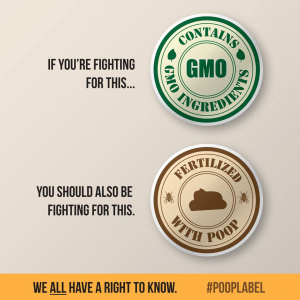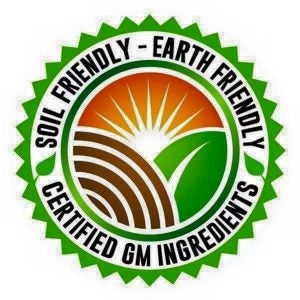The USDA is set to review GMO labeling again. Apparently, the idea is to put QR codes on foods that contain genetically engineered ingredients so consumers can know and choose what to buy based on the information from these codes.
But this is nonsense. Although foods already contain numerous labels, a vast majority of them are misleading, wrong, or just a marketing tool to sell something. The GMO label would add to confusion and give food companies one more way to mislead people for profit.
Everything we eat has been “genetically modified” in some way. Nothing we eat is natural — no matter whether a food is labeled GMO, organic, natural, non-GMO, or anything else. It’s all been modified. The difference here is that modern breeding methods like transgenesis are not allowed in organic, so organic food companies or groups such as the Non-GMO Project use fear against specific plant breeding methods for profit. Let’s not forget, “organic” and “natural” is a $350 billion business and fear sells. Why not use it to steer policymakers and consumers? They do. They do it often.
Farmers, meanwhile, are caught in the crossfire. If you ask real commercial farmers about the seeds they plant, you’ll learn there is much crossover. For example, Clearfield wheat has characteristics that make it herbicide tolerant, although technically non-GMO. Some organic seeds are pest or disease resistant.
Sound confusing? That’s because it is. How does it even make sense, and how do these groups get away with this? Welcome to politics, I suppose. Many folks in the anti-GMO crowd really don’t even know what a GMO even is.
What are we fighting for? A right to know? A right to know what? As I always say, a right to know requires the responsibility to learn. And how come people don’t care to know if their food was grown in manure? Is that “gross” or “icky?” (Sorry not sorry vegans: Your food is grown with the byproducts of poop from farm animals.) No, it isn’t gross and our food is generally very safe.

This is about money. Nothing more, nothing less. It’s about which lobbyist groups can influence policymakers and who can sway consumers the most to line their pocketbooks.
On our farm, we grow both GMO and non-GMO crops. Over 95 percent of certain crop farmers grow GMOs because it allows them to eliminate insecticide spray, reduce overall chemical usage, use no-till farming to improve the environment, save crops from disease or fortify them with more nutrients, be more resistant to weather elements, and improve yield — the list really does go on.
So, who is creating the fear here or spreading misinformation? The people selling organic and non-GMO? Tell people GMOs are bad (they aren’t) and rake in the cash? Sneaky. The case against GMOs isn’t just wrong. It’s inhumane, detrimental to society and shouldn’t be supported.
For these reasons, I purposely and personally avoid buying products labelled “organic” and non-GMO.” It’s a bummer, because some of these products may support really fantastic farmers. The farmers themselves could be great, but the marketing is not.
While pushing for these labels though, what if the label looked like this?

In this instance, it would be the one time I would go out of my way to purchase a food label. Proudly label GMOs beautifully because they’re awesome, and the true definition of sustainable. Not everyone agrees with me on this, and I get it. Who wants to add more confusion in the grocery aisle? Do we need more labels? And what if it raised the cost of food? One wheat farmer wrote a very interesting article here about the costs associated with labeling GMOs. I wonder how much if this will affect farmers, consumers, and the price of food. Therefore, I would support this label only if it didn’t inconvenience farmers or raise the cost of food for people who can barely get by financially now as it is.
Food companies need to stop using misleading language or downright lies to sell food products. Whatever happened to buying something based on taste, affordability, or made in the USA? Please voice your opinion to your policymakers and talk to food companies who are doing the right thing or the wrong thing about food containing GMOs and help spread the word of science and facts.
Michelle Miller, the Farm Babe, is an Iowa-based farmer, public speaker and writer, who lives and works with her boyfriend on their farm which consists of row crops, beef cattle, and sheep. She believes education is key in bridging the gap between farmers and consumers.



